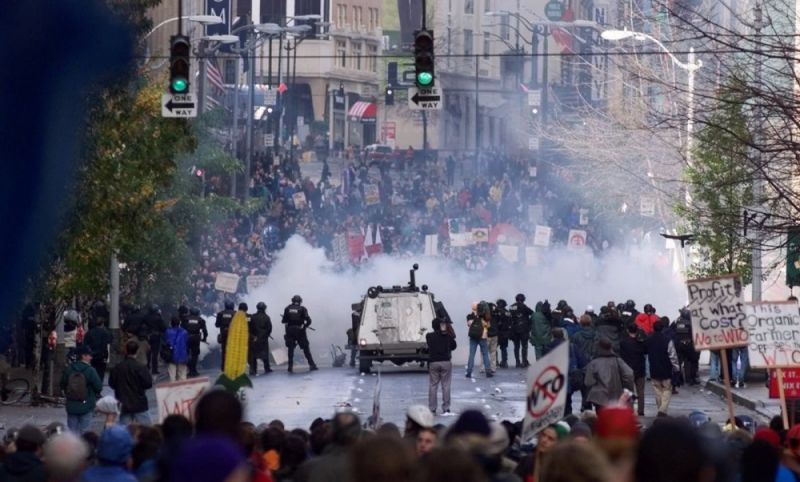November 30, 2019, will mark twenty years since “Seattle 1999.” This week of mass direct action, involving tens of thousands of people, successfully undermined the Seattle Ministerial of the World Trade Organization and helped to propel a critical public discussion about neoliberalism.
Over the last two decades, counterproductive myths have developed around “the battle of Seattle.” Now is a good time to dispense with them. One way to do this is to revisit the history from the perspective of those who were involved in organizing the mass direct action. I was one among them – at that time, a 22-year-old activist living in Olympia, Washington. Along with dozens of others, I helped found the Direct Action Network (DAN) and spent months organizing for the protests.
There are three myths about Seattle that are especially harmful. The first is that what we did was altogether new. In fact, our efforts were inspired by and followed in the footsteps of militant movements in the global South, which led the global revolt against neoliberalism. Building on anti-colonial legacies, this cycle of struggle started with protests against structural adjustment measures in the 1980s, especially in Africa and Latin America, and further cohered with the Zapatistas’ emergence onto the world stage in the mid-1990s.


